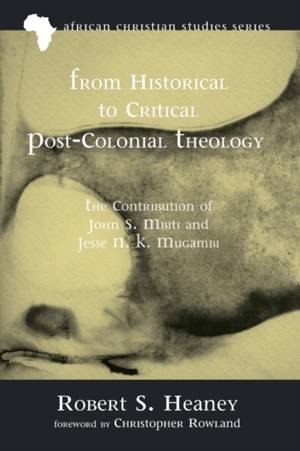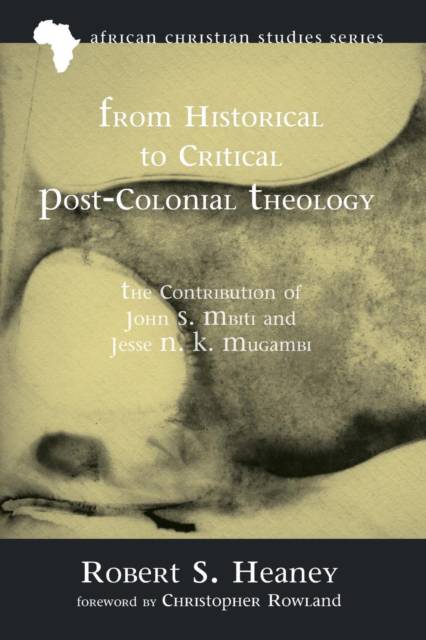
Bedankt voor het vertrouwen het afgelopen jaar! Om jou te bedanken bieden we GRATIS verzending (in België) aan op alles gedurende de hele maand januari.
- Afhalen na 1 uur in een winkel met voorraad
- In januari gratis thuislevering in België
- Ruim aanbod met 7 miljoen producten
Bedankt voor het vertrouwen het afgelopen jaar! Om jou te bedanken bieden we GRATIS verzending (in België) aan op alles gedurende de hele maand januari.
- Afhalen na 1 uur in een winkel met voorraad
- In januari gratis thuislevering in België
- Ruim aanbod met 7 miljoen producten
Zoeken
From Historical to Critical Post-Colonial Theology
The Contribution of John S. Mbiti and Jesse N. K. Mugambi
Robert S Heaney
€ 50,45
+ 100 punten
Omschrijving
What is post-colonial theology? How does it relate to theology that emerged in historically colonial situations? These are two questions that get to the heart of Robert S. Heaney's work as he considers the extent to which theologians predating the emergence of post-colonial theology might be considered as precursory to this theological movement. Heaney argues that the work of innovative theologians John S. Mbiti and Jesse N. K. Mugambi, important in their own right, must now also be considered in relation to the continued emergence of post-colonial theology. When this is done, fresh perspectives on both the nature of post-colonial theology and contextual theology emerge. Through a sympathetic and critical reading of Mbiti and Mugambi, Heaney offers a series of constructive moves that counter the ongoing temptation toward acontextualism that continues to haunt theology both in the North and in the South.
Specificaties
Betrokkenen
- Auteur(s):
- Uitgeverij:
Inhoud
- Aantal bladzijden:
- 278
- Taal:
- Engels
- Reeks:
- Reeksnummer:
- nr. 9
Eigenschappen
- Productcode (EAN):
- 9781625647818
- Verschijningsdatum:
- 6/11/2015
- Uitvoering:
- Paperback
- Formaat:
- Trade paperback (VS)
- Afmetingen:
- 152 mm x 226 mm
- Gewicht:
- 408 g

Alleen bij Standaard Boekhandel
+ 100 punten op je klantenkaart van Standaard Boekhandel
Beoordelingen
We publiceren alleen reviews die voldoen aan de voorwaarden voor reviews. Bekijk onze voorwaarden voor reviews.









